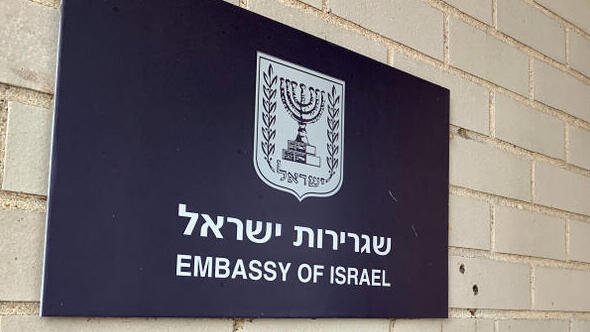In a significant diplomatic shift, the Israeli government announced the closure of its embassy in Dublin, citing what it described as Ireland’s “extreme anti-Israel policy.” In response, Taoiseach Simon Harris asserted that Ireland’s position is grounded in a commitment to peace, human rights, and international law, rather than any anti-Israel sentiment.
Israeli Foreign Minister Gideon Saar’s statement explained the closure as a reaction to Ireland’s recognition of a Palestinian state and its support for a genocide case against Israel at the International Court of Justice (ICJ) brought by South Africa. Saar accused the Irish government of employing “antisemitic rhetoric” without providing specific examples. He emphasized that the decision was made following Ireland’s unilateral stance on Palestinian statehood, which was formalised in May.
Harris expressed his disappointment regarding the closure of the embassy, firmly rejecting the accusations levelled by Israel. He reaffirmed that Ireland’s foreign policy is built on a foundation of dialogue and the peaceful resolution of disputes. “Embassies play a crucial role in maintaining this commitment,” he stated, reiterating Ireland’s aspiration for a two-state solution that ensures peace and security for both Israel and Palestine.
The Taoiseach emphasized Ireland’s unwavering dedication to human rights and international law, declaring, “Nothing will distract from that.” His remarks underscore Ireland’s commitment to advocating for the Palestinian cause while maintaining diplomatic channels with Israel.
In parallel, Micheál Martin, the Tánaiste and Minister for Foreign Affairs, clarified that Ireland has no intentions of reciprocating the embassy closure by shutting down its own embassy in Israel. He highlighted the ongoing humanitarian crisis in Gaza, condemning the loss of innocent lives as “unacceptable” and a violation of international law. Martin called for an immediate ceasefire, the release of all hostages, and increased humanitarian aid to the region.
The closing of the Israeli embassy in Dublin marks a notable escalation in tensions between Ireland and Israel, reflecting broader geopolitical divisions over the ongoing conflict in Gaza. Harris’s and Martin’s statements reflect a commitment to maintaining diplomatic relations while advocating for human rights and humanitarian efforts in the region.
Ireland’s approach to foreign policy has increasingly involved a proactive stance on international law and human rights issues, particularly regarding the Israeli-Palestinian conflict. The Irish government’s recent actions, including recognising a Palestinian state and supporting legal actions against Israel, have drawn both praise and criticism.
As the situation evolves, Ireland’s government remains steadfast in its position, focusing on dialogue and diplomacy while emphasising the importance of addressing humanitarian concerns in Gaza. The closure of the Israeli embassy in Dublin may redefine diplomatic relations, but Ireland’s commitment to its principles appears resolute.
With these developments, the Irish government continues to advocate for a balanced approach in international relations, aiming to foster dialogue that prioritises peace and justice for all parties involved.


